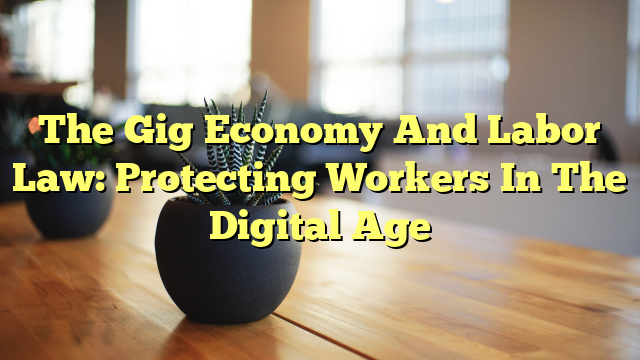Table of Contents
- What is the Gig Economy?
- What is the Digital Gig Economy?
- How Does the Gig Economy Impact People?
- What is Gig Economy Law?
What is the Gig Economy?
The gig economy is an economic model in which businesses rely on independent contractors, or freelancers, instead of permanent employees to meet their labor needs. This model has grown increasingly popular in recent years due to its flexibility and cost-effectiveness. The gig economy has been a source of controversy, however, due to the lack of labor protections afforded to independent contractors by many states and countries.
The term “gig economy” was first coined by economist and author Daniel Susskind in 2008. Since then, the term has been used to describe a range of industries and business models, from ride-hailing services like Uber and Lyft, to freelance marketplaces like Upwork and Fiverr.
What is the Digital Gig Economy?
The digital gig economy refers to the use of digital platforms to facilitate the exchange of goods and services between consumers and providers. These platforms, such as Uber and Airbnb, allow users to quickly and easily find and book services from a wide range of providers. The digital gig economy has been credited with providing increased access to services and more flexible work opportunities, while simultaneously creating more precarious situations for workers.
How Does the Gig Economy Impact People?
The gig economy has been credited with providing more flexibility and autonomy for workers, allowing them to pick and choose the types of work they want to do and when they want to do it. For example, freelance workers can choose to work on a project-by-project basis, making it easier to accommodate different lifestyle choices.
At the same time, the gig economy has also been criticized for creating an unstable and precarious work environment. Independent contractors often lack basic labor protections, such as the minimum wage, health insurance, and retirement benefits. They often lack the stability and job security of traditional employment. Additionally, because most gig economy platforms are not legally classified as employers, workers are often left without recourse if a provider fails to pay or if an agreement is breached.
What is Gig Economy Law?
Gig economy law is the term used to describe the legal framework governing the interactions between gig economy workers, providers, and platforms. As the gig economy continues to grow in size and complexity, states and countries have begun introducing legislation to ensure that workers are provided with basic labor protections and to prevent the exploitation of vulnerable workers.
In the United States, the Department of Labor has introduced regulations to protect gig workers from unfair labor practices. In Europe, the European Union has mandated that gig economy platforms be classified as employers in certain situations, granting workers the right to minimum wage, sick pay, and other benefits.
As the gig economy continues to evolve, it is important for governments and lawmakers to ensure that workers are provided with adequate labor protections. Gig economy law is an important step in ensuring that workers in the digital age are protected from exploitation.


Protect workers in digital age! #gigeconomy #laborlaw